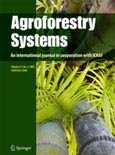We are undertaking analysis and case studies to develop proof of concept for publicly available, comprehensive, global, and independent spatial information systems on land cover and land use, their dynamics and the associated carbon stocks and flows (emissions). Current global monitoring systems provide an opportunity for comparative analysis. But there is also an increasing demand for more efficient and effective systems addressing different user needs and allowing for performance assessment of climate and development policies and their outcomes. Such assessments are increasingly important in the post-Paris world and with regard to the SDGs and other coordinated development efforts. For performance assessments, the baselines and underlying assumptions must be clear and transparent. While some authors ask for uniformed, standardized approaches, we contend that the increasing portfolio of aspects that need to be measured and assessed will have the consequence that different users will have different needs with regard to data type, time and scale resolution, and national circumstances. Getting performance assessment right is important for many aspects of global governance that will be discussed at this conference: Policy transformation will ultimately depend on possibilities to assess the outcomes; justice, fairness and equity will depend on clear and transparent data and rules of the game across multiple levels of government and policy action. A better analysis of discourse can be achieved in the light of unambiguous data. Here we will provide an update on the efforts, discuss them in view of current developments and the Paris climate agreements, and identify what needs to be done over the next 5 years (post-2015) and beyond (post-2020).
Download:
























